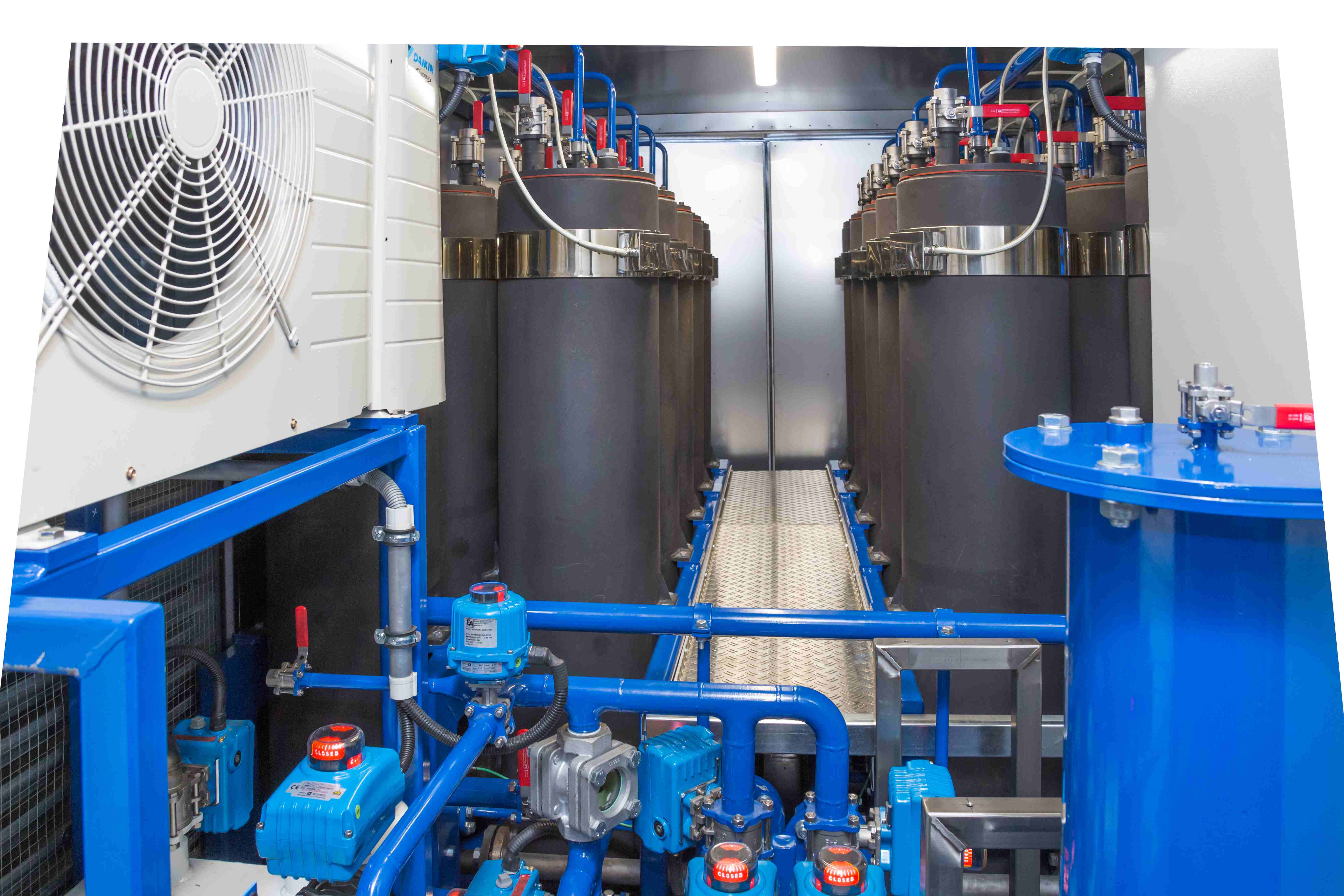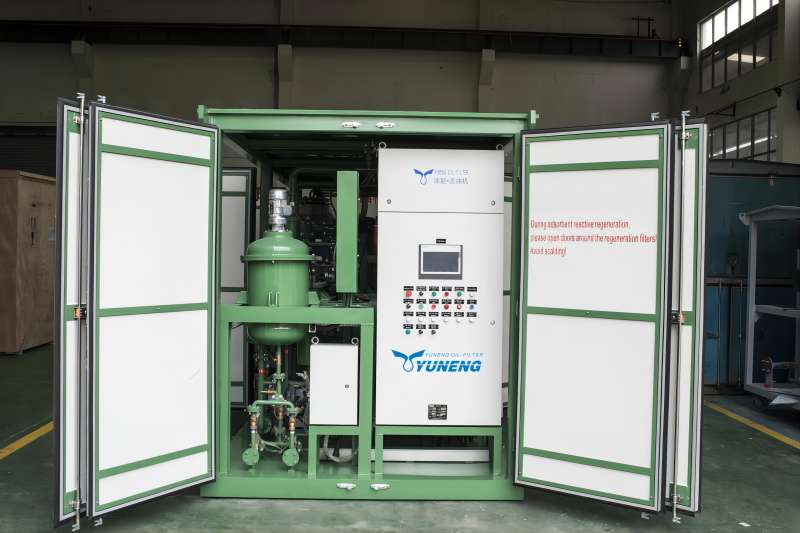Why Regenerated Transformer Oil Is Important for Reliable Power Systems
The vital function of regenerated transformer oil in guaranteeing the integrity of power systems can not be overemphasized. By restoring the oil's inherent chemical and physical homes, the regeneration procedure substantially enhances its dielectric toughness and thermal performance. This not just stops the probability of insulation failures but also adds to the durability and effectiveness of transformers. As we check out the diverse advantages of this technique, the ramifications for both functional prices and ecological sustainability ended up being progressively noticeable, raising vital inquiries about how these variables interaction in modern-day electrical facilities.
Significance of Transformer Oil
Transformer oil plays a vital duty in the efficient procedure of electric transformers. This specific oil offers multiple features, primarily as an insulator and coolant, guaranteeing the safe and dependable performance of transformer systems. Its dielectric residential or commercial properties prevent electric discharges, therefore securing the stability of transformer parts. By supplying thermal conductivity, transformer oil dissipates warm generated throughout electric operation, which is important for keeping ideal operating temperatures and extending the life expectancy of the equipment.
Moreover, transformer oil serves as a barrier against moisture and air, which can lead to oxidation and degradation of transformer products. The visibility of impurities in the oil can significantly harm its shielding homes, resulting in functional ineffectiveness and prospective equipment failing. Routine monitoring and upkeep of transformer oil are as a result important to making sure the continued efficiency of transformers.
The quality and make-up of transformer oil are vital, as they directly influence the dependability and efficiency of the electric systems in which they operate. Recognizing the significance of transformer oil is vital for energies and sectors reliant on robust power infrastructure, stressing the demand for reliable administration and regrowth processes to keep oil stability over time.
Benefits of Regeneration Process

Additionally, the regrowth procedure mitigates the degradation of oil, which can bring about increased oxidation and acid formation. This not only improves the dependability of the oil yet also decreases the threat of transformer failures due to insulation break down. The improved high quality of regrowed oil enables transformers to operate at ideal levels, ultimately resulting in enhanced energy efficiency and reduced operational costs.
Additionally, the regrowth procedure adds to keeping the overall wellness of the power system. Transformers can run much longer without the demand for oil substitute, hence minimizing downtime and maintenance efforts. In summary, the regeneration process offers substantial advantages by enhancing the longevity and performance of transformer oil, ensuring that power systems operate reliably and effectively with time.
Environmental Effect and Sustainability
The regeneration process of transformer oil considerably minimizes ecological worries connected with oil disposal and waste management. Conventional disposal techniques for made use of transformer oil pose substantial Transformer Oil Regeneration Plant risks, consisting of dirt contamination and water air pollution. By regrowing oil, these risks are noticeably lowered, as the procedure reuses existing sources instead of adding to waste buildup.
In addition, regenerated transformer oil can be reused in various applications, which promotes a round economic climate. This not only decreases the demand for virgin oil extraction-- a procedure that can be ecologically damaging-- however also saves natural deposits. The regrowth process itself uses advanced purification and purification strategies that remove harmful impurities, making certain that the final product exceeds or satisfies sector requirements for efficiency and safety.

Enhancing Transformer Performance
Significant renovations in transformer performance can be achieved with the usage of regenerated transformer oil. This oil, produced via innovative filtration processes, substantially enhances the electrical insulation buildings of transformers. By getting rid of pollutants and contaminants that normally endanger performance, restored oil makes certain remarkable dielectric stamina, reducing the risk of electrical failings.
Furthermore, regenerated transformer oil displays improved thermal conductivity, which helps with effective heat dissipation. This characteristic is important for preserving ideal operating temperature levels, therefore lengthening the lifespan of transformers and lessening the possibility of overheating - Regenerated Transformer Oil. Improved thermal administration also adds to the total reliability of power systems
Additionally, the chemical security of regenerated oil protects against the formation of corrosive acids and sludge, which can negatively impact transformer elements. By keeping a cleaner internal atmosphere, this oil minimizes upkeep requirements and extends solution intervals.
Cost-Effectiveness and Efficiency
In regards to cost-effectiveness and effectiveness, restored transformer oil provides a compelling option to conventional oils. The regrowth process not just eliminates contaminants yet additionally brings back the oil's original properties, expanding its useful life-span. This durability equates right into decreased frequency of oil substitute, thus decreasing operational prices gradually.
Furthermore, using restored oil can dramatically reduce energy losses related to ineffective protecting liquids. Its superior dielectric residential or commercial properties ensure optimal performance, improving the dependability of power systems. Because of this, services profit from lower upkeep prices and decreased downtime, promoting an extra reliable operational environment.

Verdict
In conclusion, the regeneration of transformer oil plays an important duty in guaranteeing the dependability and performance of power systems. By recovering the important chemical and physical buildings of the oil, this process enhances dielectric stamina and thermal conductivity, eventually minimizing the risk of insulation break down. Moreover, the environmental advantages related to reusing resources contribute to sustainability efforts, while cost-effectiveness and boosted performance underscore the requirement of making use of regenerated transformer oil in contemporary electric infrastructure.
Transformer oil plays a critical duty in the efficient procedure of electrical transformers. Regular tracking and maintenance of transformer oil are for that reason essential to ensuring the continued efficiency of transformers.
The regrowth procedure of transformer oil significantly minimizes environmental issues associated with oil disposal and waste administration. By prolonging the lifecycle of transformer oil, the power and sources usually consumed in generating new oil are considerably reduced.Substantial enhancements in transformer efficiency can be attained through the usage of regenerated transformer oil.